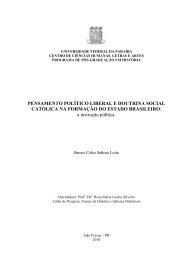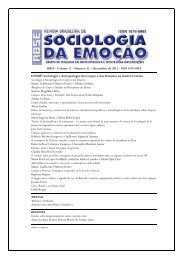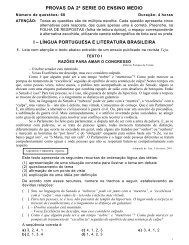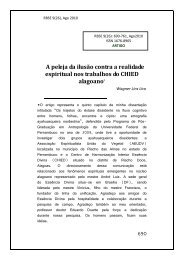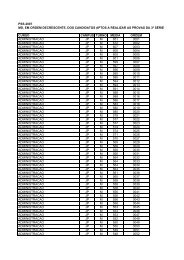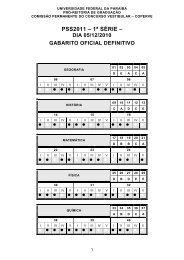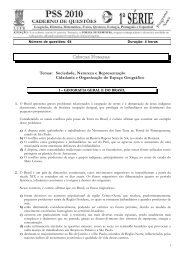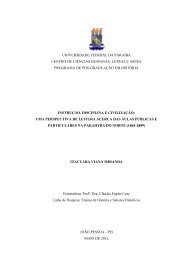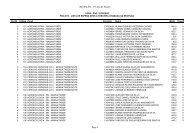abril de 2004 - CCHLA - Universidade Federal da ParaÃba
abril de 2004 - CCHLA - Universidade Federal da ParaÃba
abril de 2004 - CCHLA - Universidade Federal da ParaÃba
Create successful ePaper yourself
Turn your PDF publications into a flip-book with our unique Google optimized e-Paper software.
Generated by Foxit PDF Creator © Foxit Softwarehttp://www.foxitsoftware.com For evaluation only.of welfare recipients in Swe<strong>de</strong>n combine economic andpsychological variables (Starrin, et al 1997, 2000, 2001and additional publications in Swedish). Their basicfinding, that shame and financial stress together predictpoor health far better than either variable alone, has beenreplicated in different populations.In addition to the integration of human sciencedisciplines, a second task may be still be conceptual, andtherefore, pre-scientific. The scientific approach isorganized in terms of theory, method and <strong>da</strong>ta. But thesetools are weak until concepts have been clearly <strong>de</strong>fined,because scientists, like everyone else, live in theassumptive world of our own culture. The ocean ofassumptions that each culture reflects and generates arevirtually invisible. Unless these assumptions are i<strong>de</strong>ntifie<strong>da</strong>nd discussed, the tools of science may merely uphold thecultural/social status quo, rather than breaking newground. In Mannheim’s sense, they are i<strong>de</strong>ological, ratherthan utopian.The way that cultural assumptions impe<strong>de</strong> sciencehas been nicely caught by the philosopher Quine:The neatly worked inner stretches of science are anopen space in the tropical jungle, created by clearingtropes [metaphors] away" (1979, p. 160).That is to say, it usually happens that beforescientific procedures are applicable, a ruling trope has tobe overthrown. Quine’s formulation captures the radicallyintuitive element necessary for scientific advance. Tropesare linguistic/mental routines that both reflect and hi<strong>de</strong>cultural assumption.Perhaps Erving Goffman’s work is a mo<strong>de</strong>l in thisregard, since it has <strong>de</strong>-routinization as its main goal(Scheff 2003). Each study can be seen as <strong>de</strong>constructinglay and social sciences tropes, rather than establishingtheory, method or <strong>da</strong>ta. His favorite trope was theWestern individualized i<strong>de</strong>a of the self. The self or person,he proposed in many different contexts, can just as easilybe seen as a social arrangement. He also attacke<strong>de</strong>stablished social institutions, such as sex roles andmental illness. This goal would explain why he seemed tostart afresh with each work. "Look," he could have said,"We need to construct alternative universes. That’s why I115



